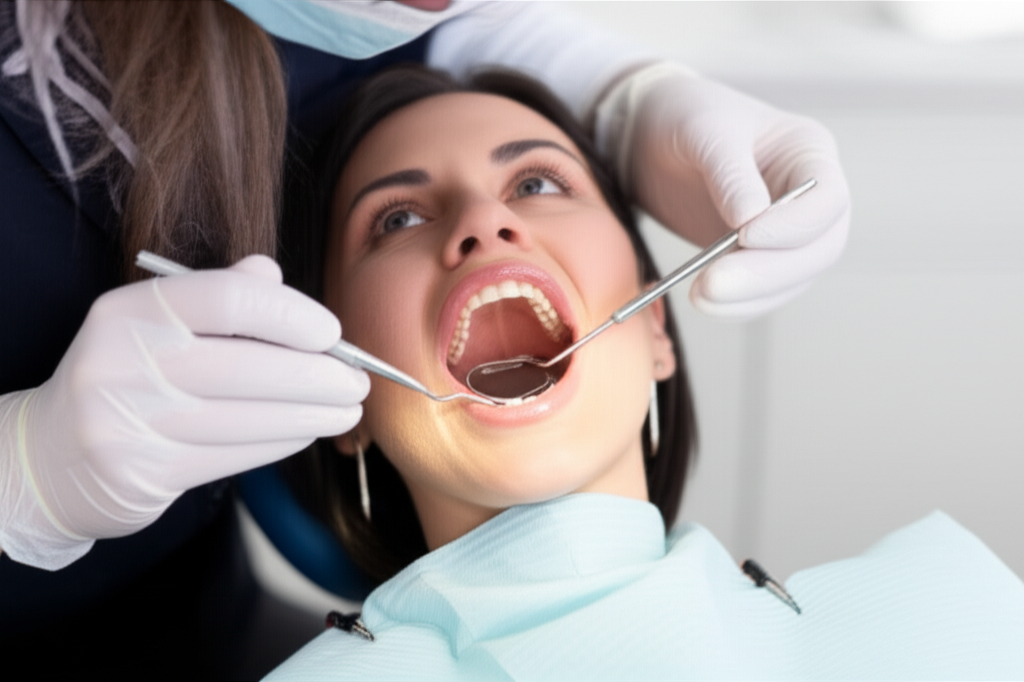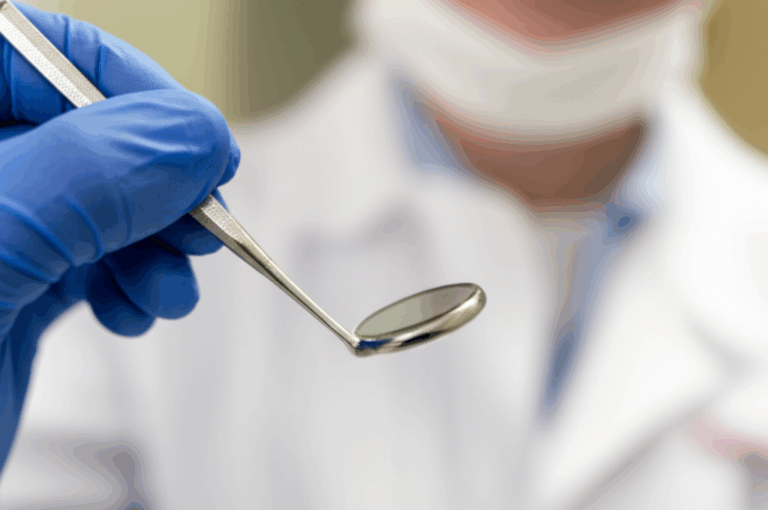
Can Your Dentist Tell If You’ve Engaged in Oral Sex? Understanding Oral Health & Dental Privacy
Let’s be honest: most people have questions about their health that they feel too awkward to ask—especially when it comes to the dentist’s chair. Maybe you’ve wondered, “Could my dentist tell if I’ve recently had oral sex?” Does that anxiety tingle in the back of your mind during your exam? You’re not alone.
First, let’s take a breath. It’s totally normal to be curious (or worried) about what your dentist might notice. After all, nobody wants their private life talked about when they go in for a dental cleaning.
Here, we’ll break down what a dentist can see during your checkup, what those signs might mean, and most important, how your dentist’s job is to help your health—not judge your choices. Whether you’re nervous, curious, or just want to keep your mouth healthy, you’re in the right spot.
In This Article
What We’ll Cover:
- Introduction: The Dentist’s Focus – Your Health, Not Your Private Life
- What Dentists Actually Look For During an Exam
- Can a Dentist Specifically Tell “How” You Got It?
- Protecting Your Mouth When Having Oral Sex
- Dentist-Patient Confidentiality & Your Privacy
- Conclusion: Putting Your Health First
Introduction: The Dentist’s Focus – Your Health, Not Your Private Life
You might feel worried stepping into the dentist’s office, especially if your last night’s fun is still on your mind. But here’s what most people don’t know: your dentist isn’t there to figure out your personal life. Their job is to find early signs of mouth problems—from tooth decay and gum issues to serious things like oral cancer.
Dentists look for changes, injuries, or infections in your mouth, not clues to your private life. Yes, some signs can come from different things (including oral sex), but it’s hardly ever clear-cut. Also, every good dentist promises to keep things private. What happens in the dental chair stays in the dental chair.
So, let’s get this straight: Your dentist’s main job is your health, not your habits.
What Dentists Actually Look For During an Exam
When your dentist looks in your mouth, they aren’t looking for a neon sign saying “oral sex happened here!” Instead, they follow certain steps to keep you healthy. Here’s what really happens at a regular checkup and what might catch their eye.
Regular Oral Health Check
Your dentist or dental assistant checks pretty much every spot in your mouth. Here’s their list:
- Teeth: They look for cavities, cracks, worn-down spots, and signs of damage.
- Gums: Looking for swollen, red, or bleeding gums.
- Tongue, Throat, and Roof of Mouth: Checking for sores, bumps, color changes, or anything strange.
- Salivary Glands and Tonsils: Noticing if there’s any swelling or pain.
- Jaw (TMJ): Checking if your jaw hurts, clicks, or is hard to open wide.
They might also look for signs of oral cancer, feel around your neck for swollen glands, and ask about your health history, medicines, or health conditions.
Your dentist tries to find problems early—think of them as trying to solve the puzzle of how to keep your mouth healthy.
Signs of Injury or Irritation
Sometimes, your dentist spots signs in your mouth that can be caused by many things. These might be:
- Bruises or Red Spots: Small red or purple dots (petechiae) on the roof of the mouth might show after hard sucking or injury. You might get these from heavy kissing, crunchy food, or from certain types of oral sex.
- Frenulum Tears (the stretchy bit under your tongue or lips): Intense oral activity—like kissing or oral sex—can cause tiny tears or raw areas.
- Soreness, Swelling, or Redness: Anywhere in the mouth or throat. This could happen from brushing too hard, eating hot food, or from something else.
- Jaw Pain or Soreness: If you’ve had your mouth open wide for a long time, it’s normal for your jaw to feel a bit tired.
Here’s what’s important: None of these signs are only from oral sex. A dentist might see an injury but won’t know for sure how it happened.
Signs of Infections
Dentists always check for different infections in your mouth. Some sexually transmitted diseases (STIs) can show up as signs your dentist might see. Here are some examples:
Sexually Transmitted Infections (STIs):
- Herpes (HSV-1 or HSV-2): Might show as cold sores, ulcers, or blisters on your lips, tongue, gums, or the roof of your mouth.
- Gonorrhea: Usually quiet in the mouth, but can look like a sore throat, swollen tonsils, or mild swelling at the back of your mouth.
- Syphilis: Can make a painless sore (chancre) or white, flat patches in your mouth. Later stages can create a rash or other patches.
- HPV (Human Papillomavirus): Can cause small warts in your mouth, and some types are linked to cancers in the throat. These look like small bumps or spots that don’t go away.
- Chlamydia: Hardly ever shows up in the mouth, but if it does, it might look like a sore throat.
Other Infections:
- Thrush (Candidiasis): White patches from yeast (often after antibiotics, immune changes, or injury).
- Bacterial Infections: Painful, red, or swollen spots—especially if you’re not feeling well.
But, and this is big—most of these can also come from other things like low immunity, certain medicines, or just a random bug.
Can a Dentist Specifically Tell “How” You Got It?
Here’s where rumors and truth meet. Many people worry the dentist will know just by looking. Calm down: it’s not like that.
The “What” vs. The “How”
A dentist can often see what’s happening in your mouth—a sore, a red dot, maybe a bruised spot. But they can’t say for sure how it happened just by looking. That bruise could be from candy, a slip with a toothbrush, singing loudly, or oral sex. Dentists don’t have a magic spyglass for bedroom activities.
Think about it like this: if your car has a dent, your mechanic knows it’s damaged—but unless you tell them, they don’t know if it was from another car, a cart, or a wild raccoon.
Guessing the Cause
Dentists try to guess what caused a problem based on where it is, how it looks, and your health story. But lots of mouth problems look alike:
- Petechiae (red dots): Can pop up from coughing, throwing up, sports, dental work, or oral activity.
- Soreness or injury: Could be from hard snacks, mouthguards, dental stuff, braces, or biting from stress.
- Sores and Ulcers: Many health issues look the same—all kinds of sores from canker sores to viruses.
Without you telling them, a dentist can’t guess a single cause—they just see the effect. If they ask tough questions, it’s only to make sure you get the right help—not to be nosy.
Why Honesty Helps
If your dentist finds something odd—like a sore that won’t heal, odd swelling, or a funny bump—being open about your health, lifestyle, and recent activities helps them help you. Dentists are here to fix, not judge (and what you say is private).
But you have the right to keep things private. Still, being honest helps your dentist figure out what’s really going on and give the best care.
Protecting Your Mouth When Having Oral Sex
Your mouth does a lot—talking, breathing, eating, and sometimes kissing or more. Oral sex, like any close contact, can affect your mouth, but you can do things to stay safe.
Safe Habits
- Use Protection: Dental dams (thin sheets) or condoms help stop STIs and lower infection risk.
- Keep Your Mouth Clean: Brush and floss as usual, and try rinsing with a gentle mouthwash after oral sex—but don’t brush right after, as it can irritate your mouth.
- Skip Oral Sex If You Have Cuts or Sores: These give germs and viruses an easy way in.
Simple tip: Make sure your mouth isn’t too dry—a wet mouth gets hurt less. Drink water!
Regular Dental Visits
Prevention is easiest. Early mouth problems often don’t hurt and are hard to see. Visiting the dentist means they can catch problems before they get bad.
- Be Honest with Your Dentist: If you have weird symptoms—sore throat, jaw pain, red or white spots, swelling, or pain—mention it. You don’t have to give every detail, and dentists know how to help without judging.
- Get Checked for Oral Cancer: Dentists check for HPV and other risks. If you’re worried about a spot or bump, ask for a full checkup. Catching things early makes a difference.
- Talk About Any Worries: If you get nervous about privacy or feel judged, let your dentist know—they want to keep you comfortable.
Watch For Symptoms
Listen to your body. If you notice any of these and they don’t get better in a week or two, see your dentist:
- Long-lasting sore throat or trouble swallowing
- Swelling, pain, or strange feelings in your mouth or throat
- White or red spots
- Jaw pain, clicks, or problems opening your mouth wide
- Bleeding (not from brushing or flossing)
- Bad taste or bad breath that sticks around
You know what feels normal for you. Don’t wait if something’s not right!
Dentist-Patient Confidentiality & Your Privacy
It’s one thing to worry about your dentist spotting something. It’s another to worry if they’ll talk about your business. Here’s the truth:
Dentists Must Keep Things Private
Every dentist and assistant must follow strict rules about keeping your information private. Like your doctor, your dentist can’t tell anyone about your health—ever. This is more than being nice; it’s the law.
Your sexual history, choices, and any information you share is safe. They can only break privacy rules for big reasons—like if somebody’s safety is at risk, not just for nosy stuff.
You Can Always Ask
You have the right to good, respectful care. Don’t be scared to
- Ask about anything you see or feel in your mouth
- Bring up worries—no matter how embarrassing
- Tell your dentist if you want a gentle touch or need more privacy
Great dentists know mouth health is part of your whole body health—not a reason to judge your lifestyle.
If you ever feel uneasy, you can find another dentist. Your comfort matters just as much as your teeth.
Conclusion: Putting Your Health First
Let’s keep it simple: your dentist is there to help your mouth stay healthy, not to find out your secrets. Oral sex, like other activities, can sometimes leave little marks—red dots, sore muscles, maybe a blister. But these things have lots of possible causes.
Dentists notice if something looks off, but only your honest answers help them understand the whole picture. Your privacy is protected. Your health comes first. And every question, even the awkward ones, is worth asking.
Quick Reminders
- Dentists can’t say for sure if you’ve had oral sex just from looking in your mouth.
- Bruises, soreness, or sores can have loads of causes, most of which are innocent or easy to explain.
- Some STIs can be seen in the mouth, but their signs don’t say how you caught them.
- Good brushing, safe habits, and regular checkups are your best ways to stay healthy.
- Your privacy is safe by law and the best dentists care about your health, not your secrets.
What to Do Next
- Go to checkups—even if you’re a bit nervous. Catching problems early is best.
- Say something if you notice anything weird or feel worried about your mouth.
- Practice safe sex and keep your mouth clean. These are important!
- Don’t let feeling embarrassed stop you from getting help. Your dentist is on your side.
FAQs: Your Top Questions Answered
Can a dentist tell if I’ve had oral sex the night before my appointment?
No. There aren’t any “obvious” signs only from oral sex. While they might notice a small bruise or sore, these can come from lots of things and usually aren’t seen as odd.
What if I have a sore in my mouth—will my dentist think it’s from something bad?
Dentists see mouth sores every day. Their main job is to just see if it’s serious and how to fix it—not to guess what you’ve been doing.
If my dentist asks about private stuff, do I have to answer?
You always have the right to decide. Still, being honest helps your care. Anything you say is private.
Can dentists find STIs during a checkup?
Some STIs, like herpes or HPV, may make visible changes. But to know for sure, lab tests are needed. If your dentist thinks you might have an infection, they’ll tell you the next steps.
I’m scared about privacy—what should I do?
Tell your dentist your worries. A good practice will help you and answer any questions, without judging.
Want to Learn More About Dental Health?
If you want to know about tooth repair, new dental materials, or want the latest in dental care, check out expert resources. Technology—like at any good digital dental lab, dental ceramics lab, or removable denture lab—is making it easier to keep your smile healthy around the world.
Your mouth deserves good care—made better by technology, honesty, and real support.
Remember: Your dental team is there to help you get the best health and confidence, no matter your story. If you have questions, reach out, book a visit, and take charge of your smile—with full privacy and real peace of mind.








